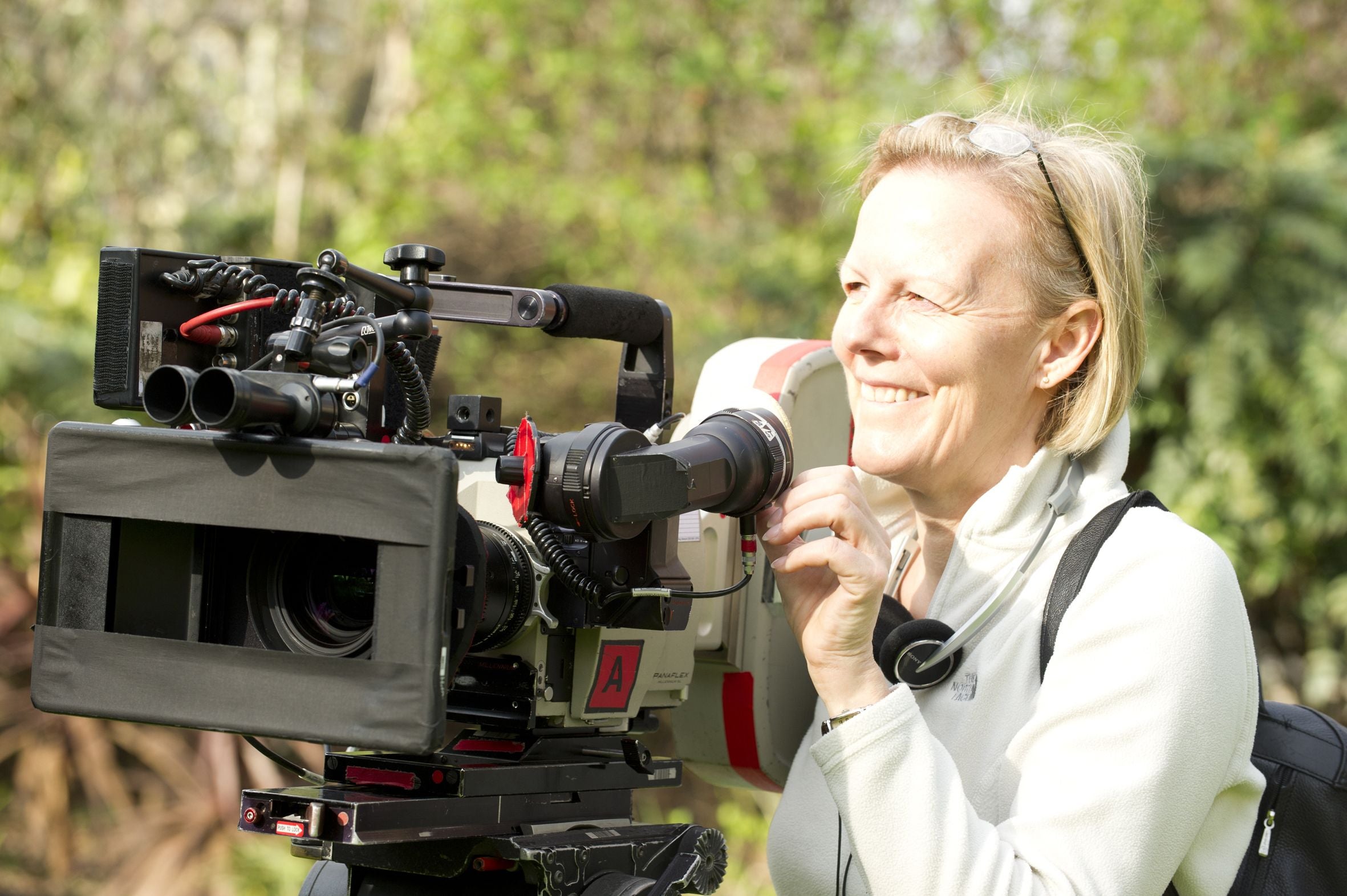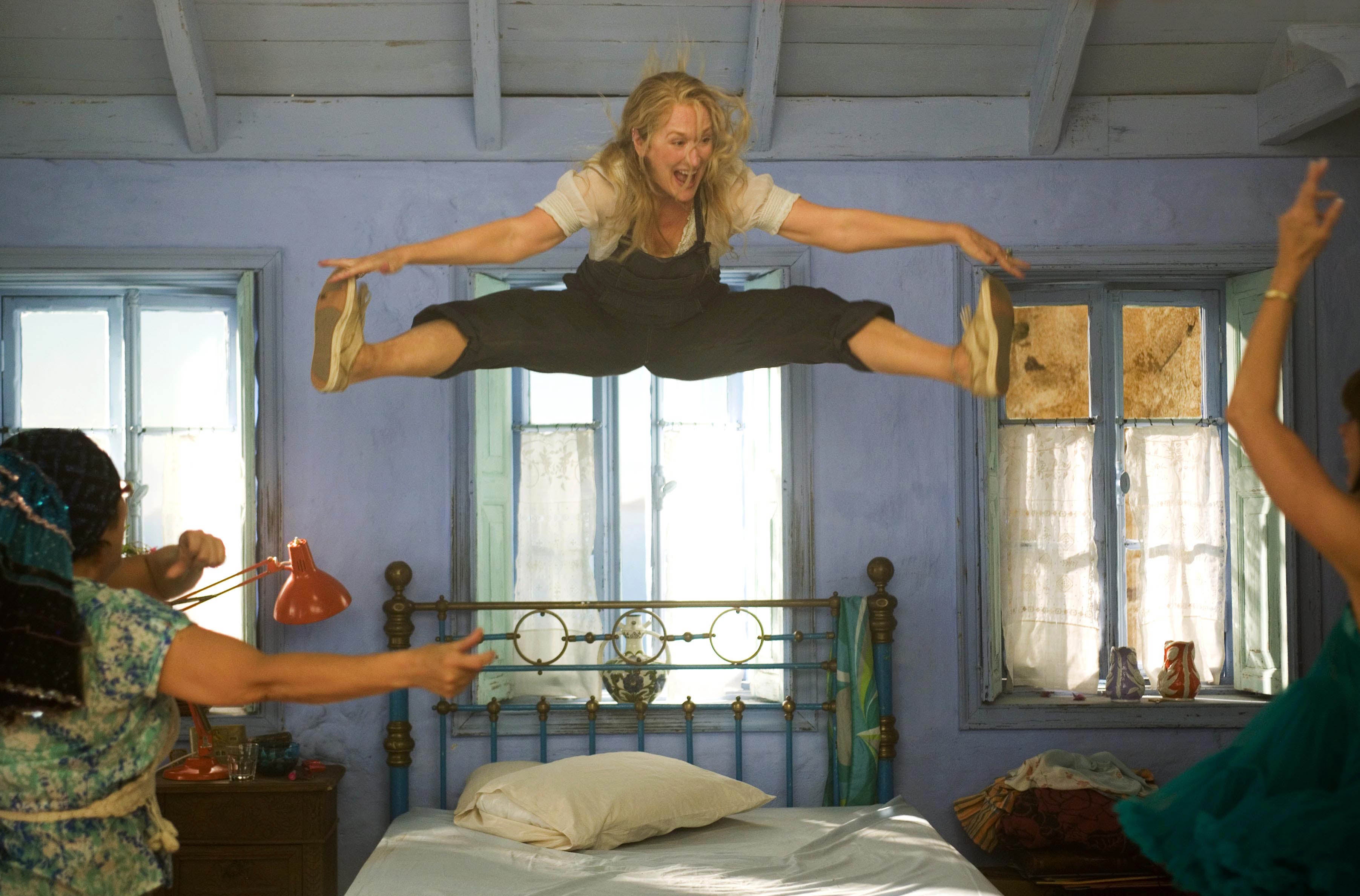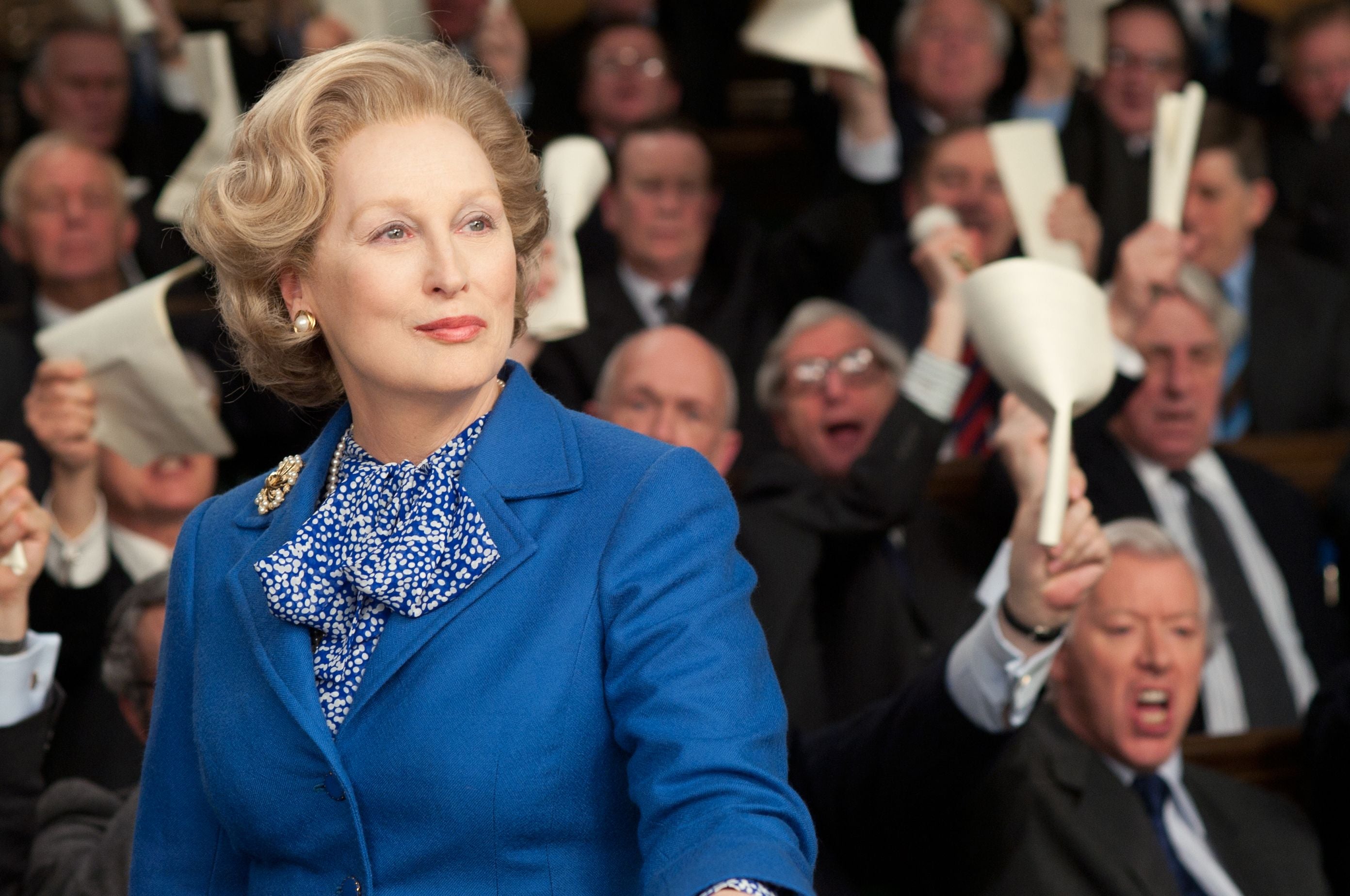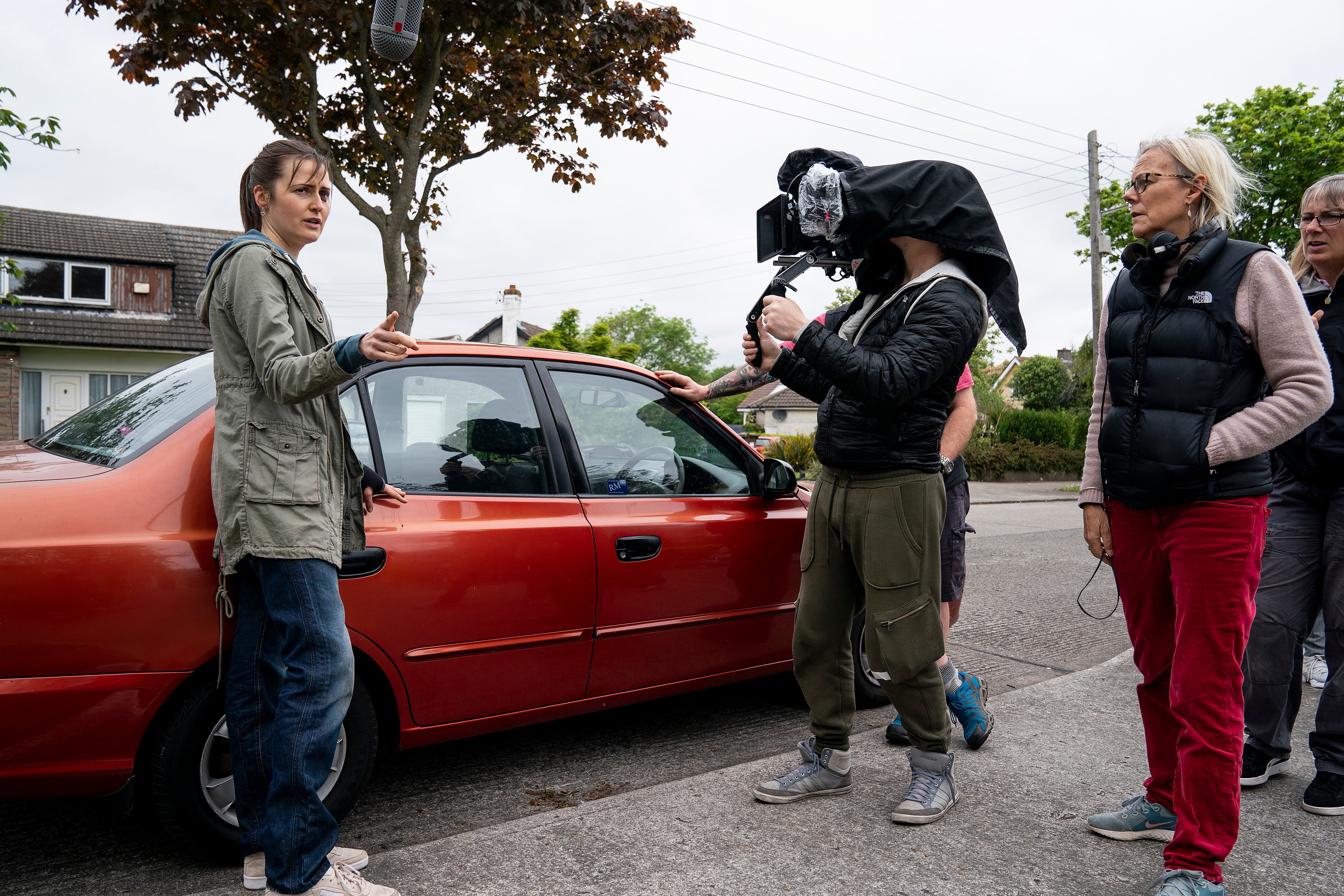Phyllida Lloyd: ‘There are not nearly enough roles for older women’
The director is known for her big hits like ‘Mamma Mia!’ but she came aboard a low-budget indie because of its poignant star and theme. She talks to Charlotte Cripps about visibility, making movies in a man’s world and the timeliness of her new domestic abuse drama


Your support helps us to tell the story
From reproductive rights to climate change to Big Tech, The Independent is on the ground when the story is developing. Whether it's investigating the financials of Elon Musk's pro-Trump PAC or producing our latest documentary, 'The A Word', which shines a light on the American women fighting for reproductive rights, we know how important it is to parse out the facts from the messaging.
At such a critical moment in US history, we need reporters on the ground. Your donation allows us to keep sending journalists to speak to both sides of the story.
The Independent is trusted by Americans across the entire political spectrum. And unlike many other quality news outlets, we choose not to lock Americans out of our reporting and analysis with paywalls. We believe quality journalism should be available to everyone, paid for by those who can afford it.
Your support makes all the difference.I think that Meryl Streep really gave me the courage to build a slightly more equitable, balanced world [on a film set]. She encouraged me to think, ‘No, no, no, it doesn’t necessarily have to be like this’… It can be a more gentle environment,” says the Somerset-born film director Phyllida Lloyd. “I was able to create a less patriarchal environment. It was a bit more hugs in the morning than saluting.”
Lloyd’s talking about The Iron Lady, her 2011 biopic of Margaret Thatcher that starred Streep in an Oscar-winning performance as the former UK prime minister. It was the second film Lloyd directed with the actor, who also played the free-spirited singing and dancing Donna Sheridan in Lloyd’s debut film, the 2008 Abba-inspired blockbuster Mamma Mia! – one of the highest grossing British films ever made.
But now, Lloyd, 64, has made a surprising move: she’s downsizing from blockbusters to indie films with her new Irish domestic abuse drama Herself, which is out 10 September.
“I think it sounds ridiculous, but it was actually quite hard to persuade people or convince them that this is really what I wanted to do – to work on a low-budget film,” says Lloyd, who is exceptionally down-to-earth and drinking from a giant yellow mug. She talks slowly and thoughtfully over Zoom from her home near Guildford, Surrey, where she lives with her partner and her two children.
Herself couldn’t be more different from the heaps of “fun, fizzy stuff” and “soccer mom movies” she was sent after Mamma Mia!. It’s a moving and gut-wrenching portrait of a domestic abuse survivor and single mother, Sandra, played by the Irish stage actor Clare Dunne, who also wrote the screenplay. Having escaped her abusive ex-partner with her two young daughters, Sandra finds herself trapped in temporary accommodation with an endless waiting list for council accommodation. That’s when she decides to build an affordable home herself at the bottom of a garden belonging to Peggy – played by Downton Abbey’s Harriet Walter – for whom Sandra cleans.
The film is triumphant and uplifting, like a mild version of Billy Elliot, where the lead character succeeds against the odds with the help of a friendly community. But it also brutally demonstrates that, despite the kindness of strangers and a brand new house, it doesn’t stop the abuse. Herself questions why victims of domestic abuse are so often asked, “why didn’t you leave him sooner?”, which puts the onus of blame on them.
Lloyd took on directing duties to ensure Dunne played Sandra. “She was really struggling to get work on screen,” says Lloyd, “despite her astonishing gifts” because “she didn’t have the conventional face”.
“She was being asked to cover up the mark on her eye – her birthmark – when she went for auditions,” Lloyd continues. “You know, it outraged me that she was being judged in this way, in a way that a man never would be.” Lloyd first met Dunne in 2012 when she cast her as Portia alongside Walter as Brutus in Julius Caesar, the first of Lloyd’s ground-breaking all-female Shakespeare trilogy at the Donmar Warehouse. When she heard that Dunne thought the film needed a bigger star than herself to get the funding, Lloyd thought, “Sod this. She has to play the lead in this and maybe if I commit to it, I can make that happen.”
Anyway, a more low-key working environment was alluring to Lloyd, who describes big-budget films as “a great big juggernaut of a machine”.

Watch Apple TV+ free for 7 days
New subscribers only. £8.99/mo. after free trial. Plan auto-renews until cancelled

Watch Apple TV+ free for 7 days
New subscribers only. £8.99/mo. after free trial. Plan auto-renews until cancelled

“I wanted to get into the realm of low-budget films because I thought that it might help me bring the kind of work I was doing in the theatre and align it more with what I’m wanting to do on screen,” she says. “It’s more just trying to prevent the working environment feeling quite so schizophrenic. And by working on a lower-budget film, it feels a little bit more like the world I’m used to. It’s more earthbound.”
Lloyd has always been a trailblazer: from her all-female Shakespeare plays to hit films and musicals, she’s always put women centre stage. When she left an all-girls arts-based boarding school at the foot of the Malvern Hills, where they “played all the parts in plays”, she was “a bit shocked” that women were only given “two small handmaid roles” in the real world of theatre. “I thought, ‘God, we’ve got to get back to the program here!’ Back to what it feels like when we have not just a tiny slice of the cake, but at least half.”
After reading English and drama at the University of Birmingham, she had a five-year stint in the BBC TV drama department, before getting an Arts Council grant to train as a theatre director in 1985, aged 28. Her productions were bold, inventive, often radical, drilling down to the roots of the characters’ psychological make-up – as in the case of her adaptation of Schiller’s Mary Stuart, starring Janet McTeer (Mary) and Walter (Elizabeth I) at the Donmar in 2005, in which Lloyd zoomed in on the rival queens’ sense of isolation in a man’s world by dressing them in period costume, while the male courtiers wore modern dress.

She also forged a career as a successful opera director, causing controversy with her ENO production of Wagner’s Ring Cycle in 2005, in which Brunnhilde, the leading character in part of the four-cycle opera Twilight of the Gods, was portrayed as a suicide bomber. Her all-female Shakespeare trilogy – developed at HMP Holloway with a cast that included ex-offenders – was also deemed provocative at first, and dismissed as voguish. “A swathe of the critics were annoyed. I think they thought it was a sort of an attempt at a coup of the establishment,” says Lloyd. But it became a game changer by the time she had finished it with The Tempest in 2017, with five-star reviews proving that a Shakespeare cast no longer needed to be male.
A more upbeat work, her 1999 stage musical Mamma Mia! – which was the inspiration for the film version and is still running in the West End after 22 years – might have been cheesy but nevertheless sent out an empowering feminist message: it was a show about the importance of female friendships, and refused to shame Streep’s character Donna for her promiscuity. And next, Lloyd is heading to New York to put Tina: The Tina Turner Musical back on Broadway in October after it was suspended due to the Covid pandemic; it had its world premiere at London’s Aldwych Theatre in 2018, before opening on Broadway in 2019.
I ask her what it’s like being labelled a “female director”? Lloyd only “came to terms” with it “for the first time” while working on the film Mamma Mia! – “because the ratio of men to women was such a gigantic imbalance”.
“When I first stepped onto the set of Mamma Mia!, the film crew greeted each other ‘morning sir’ and ‘morning governor’. It was “a bit like being in a military barracks,” she says. “There was really no word for me because they didn’t know what to say.”

It wasn’t until a few weeks into filming, when the chief gaffer turned to Lloyd and said “Good morning, ma’am”, that she thought, “OK, I’ve arrived”.
“But it felt as if they’d crossed to the dark side,” she says about the film crew.
Lloyd feels there is still much work to be done on behalf of women in cinema, saying “there are not nearly enough roles for older women”.
“I think social media is really not helping this, that old women, whatever old is, are really not regarded as sexy. A man can become sort of large, bold and crazy and still have a great movie career until he drops down. But a woman is having to start worrying about her face long before that, which I think is a tragedy.”
Lloyd, who recalls watching actors like Glenda Jackson on screen when she was a teenager, in roles that were “playing into no tropes of what femininity was assumed to be… and being incredibly sexy and powerful”, says things have “gone backward” since the Seventies.

Lloyd has always fought for women – and in the case of Herself, not only by casting Dunne in the lead but also by sending a message of hope to victims of domestic abuse. When the film was streamed on Amazon Prime Video in the US earlier this year, rather than screened in cinemas, because they were closed due to the pandemic, she was initially “disappointed”.
“But as we began to think about the escalation of domestic violence, the number of people stuck in harrowing lockdown in really traumatic relationships, you start to think, ‘Gosh’,” says Lloyd. “Clare’s mission was to try with this film, not just to elicit compassion from those of us who feel safe in our homes, but to give hope to somebody who is in this situation.”
‘Herself’ is out in UK cinemas now



Join our commenting forum
Join thought-provoking conversations, follow other Independent readers and see their replies
Comments